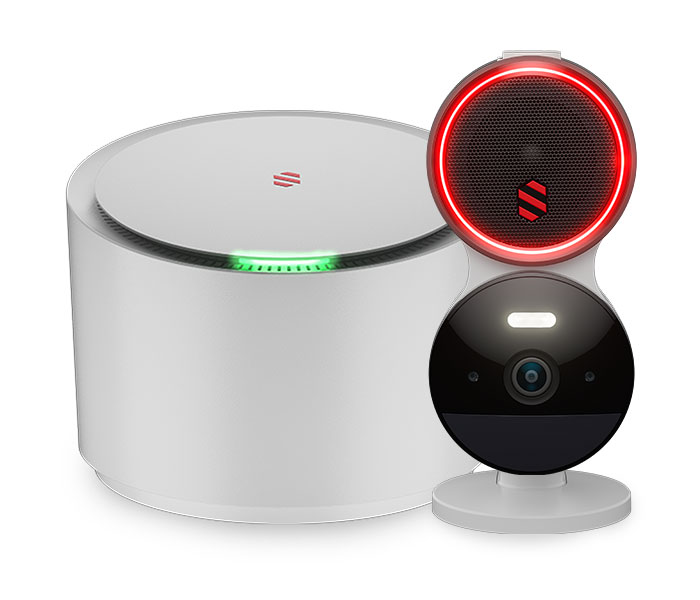What Is Third-Degree Burglary?

A burglary is a burglary, plain and simple… right? Not exactly. In everyday conversations, people often mix up the meanings of burglary, theft, and robbery. In addition, there are different “levels” of burglary, depending on the situation. These range from first- to third-degree burglary (from most to least severe, respectively). But what do all these legal definitions mean, anyway? Let’s dig in, focusing particularly on burglary.
Theft, Robbery, Burglary: Name That Crime
In simple terms, here’s the difference between these three commonly interchanged terms, courtesy of Law.com. Burglary involves unlawful entry into a structure with the intent to commit a crime (any crime). Theft is intentionally and fraudulently acquiring someone’s personal property. And robbery is taking property directly from the victim by using force or threats.
As you can see, there’s some overlap. Hence, the confusion. So let’s look at some examples.
If you’re invited to dinner and steal the host’s wallet, that’s theft. Likewise, if you nab a bicycle outside the library or stuff a scarf from a boutique in your purse without paying? Theft.
Theft may also involve burglary… if the perpetrator enters a structure unlawfully. That structure could be a home, a store, or even a vehicle. So if someone breaks into your garage planning to steal equipment, it’s burglary, even if they don’t take anything. The offender doesn’t even have to use force to enter. The FBI’s Uniform Crime Reporting Program has three subclassifications for burglary: forcible entry, unlawful entry where no force is used, and attempted forcible entry.
Robbery ups the severity by involving real or implied violence. If a criminal threatens a gas station clerk with a gun to get the money in the cash register, that’s robbery. Armed robbery, specifically. But if the criminal sneaks in at night and takes the cash, that’s burglary plus theft.
Other terms that are similar to burglary include:
- Trespassing: Someone enters a property without criminal plans.
- Breaking and entering: Burglary that involves any force to enter (even pushing open a door).
- Home invasion: Like burglary, but someone is present in the structure.
Now that we have a clearer picture of what burglary is (entering a structure illegally with criminal intent), let’s dive deeper into the types of burglary.

The Degrees of Burglary
Burglary can be classified into degrees from a legal standpoint. Each carries its own level of punishment pursuant to the severity of the crime. Before we dive in, it’s important to remember that burglary laws vary widely from state to state. California, for example, only has first-degree and second-degree burglary charges, which are mostly defined by the type of structure that has been burglarized. Some states even include a fourth degree covering the intent to break in (e.g., the criminal is found outside a house, crowbar in hand).
As such, the information below talks in generalities. You may want to brush up on your home state’s laws.
Third-Degree Burglary
What is 3rd degree burglary? Third-degree burglary is the least severe offense and fits the simplest definition of burglary. A third-degree burglary charge applies to criminals who enter a building planning to commit some crime, such as theft or assault.
Whether they successfully commit the crime doesn’t matter. The intent is what matters, even if they suddenly changed their minds or were scared off.
Third-degree burglaries carry lower sentences than second- and first-degree burglaries. That said, any degree of burglary is most often classified as a felony. Sentences for burglary in the third degree vary significantly depending on the state, from a few months of imprisonment or more to hefty fines, and sometimes a combination.
Second-Degree Burglary
Second-degree burglary is a more serious offense. Depending on the state, several factors can upgrade a burglary into this classification:
- The offender is armed
- The offender uses or threatens to use a weapon
- The offender has a criminal record
- The structure is a residence, bank, pharmacy, government building, or some other high-risk building
- The structure is occupied at the time of the burglary (as is the case in a home invasion)
And so on. The crime does not need to include all of these parameters to be a second-degree burglary.
This degree has the most state-to-state variations, both in its definition and in its punishment. Generally, you could expect longer jail time and higher fines.
First-Degree Burglary
No matter how it’s defined in your state, first-degree burglary is the most serious offense. Typically, these crimes involve severe circumstances such as the homeowner being present, bodily harm, deadly weapons, significant property loss or damage, repeat offenses, and the like. Accordingly, these burglaries get the harshest punishment, possibly including many years in prison (10 years or more).
Protect Yourself from 3rd-Degree Burglary (and More)
Why care about burglaries? Well, they could easily affect you personally. The break-in statistics don’t lie.
According to data from the FBI and U.S. Department of Justice, there are around 2.5 million burglaries annually in the United States, and 66% of these are homes. That translates into a break-in every 26 seconds. And once a burglar has struck, the police solve only about 13% of cases. In short, burglary is frequent and widespread. Since 83% of burglars check for an alarm system, prevention in the form of an always-on security system is your best course of action.
But not all security systems stop burglars before they strike. To prevent crime, you need something special. For your sanity and well-being, you want the peace of mind that Deep Sentinel provides.

Only Deep Sentinel combines live video surveillance with AI that differentiates between normal activity and potentially criminal activity. Real human guards monitor your property and intervene if there’s anything amiss, like an attempted break-in. If a crime like a burglary or theft occurs, the guards report it directly to the police with to-the-minute information.
Protect yourself from 1st, 2nd, and 3rd degree burglary (plus much more) with Deep Sentinel’s advanced security cameras.
Need a Solution that Prevents Crime?
Deep Sentinel is the only security technology that delivers the experience of a personal guard on every customer’s home and business. Visit deepsentinel.com or call 833-983-6006

